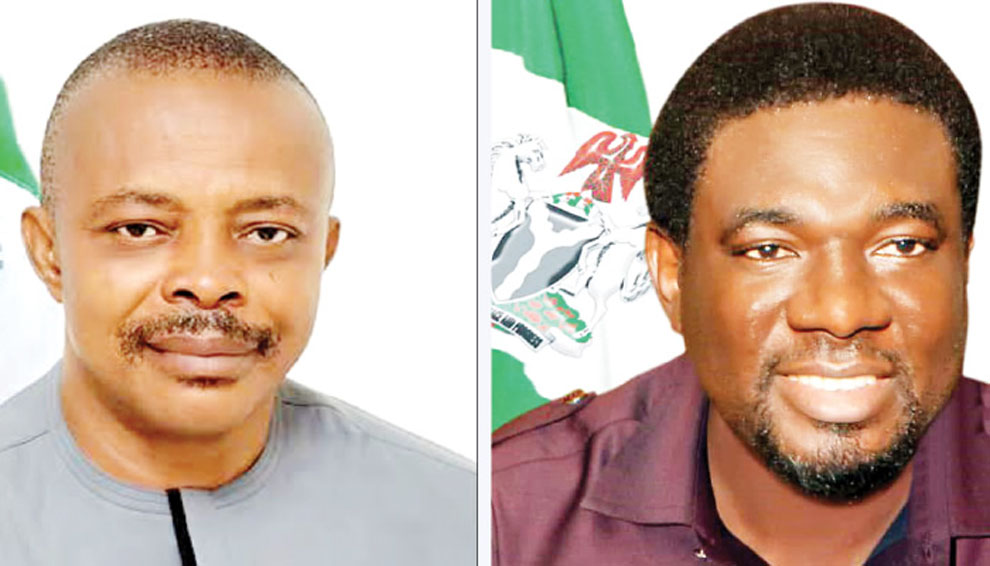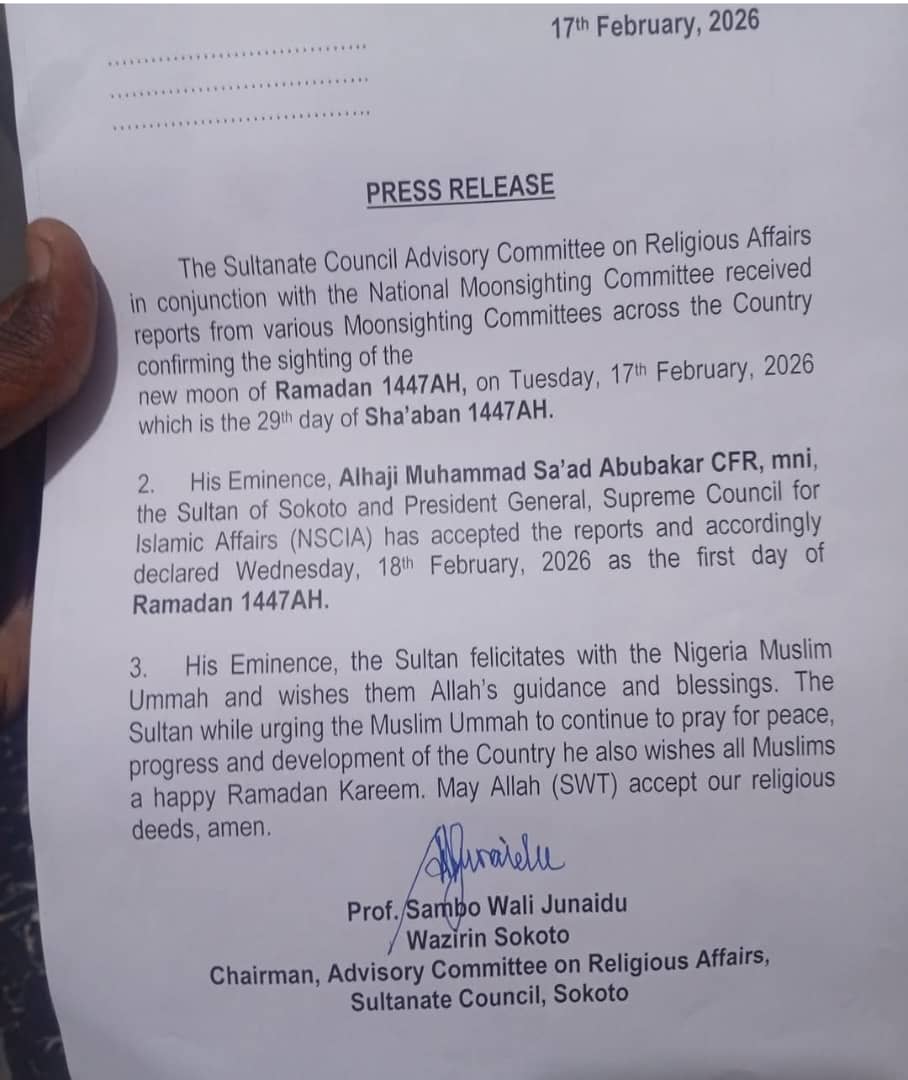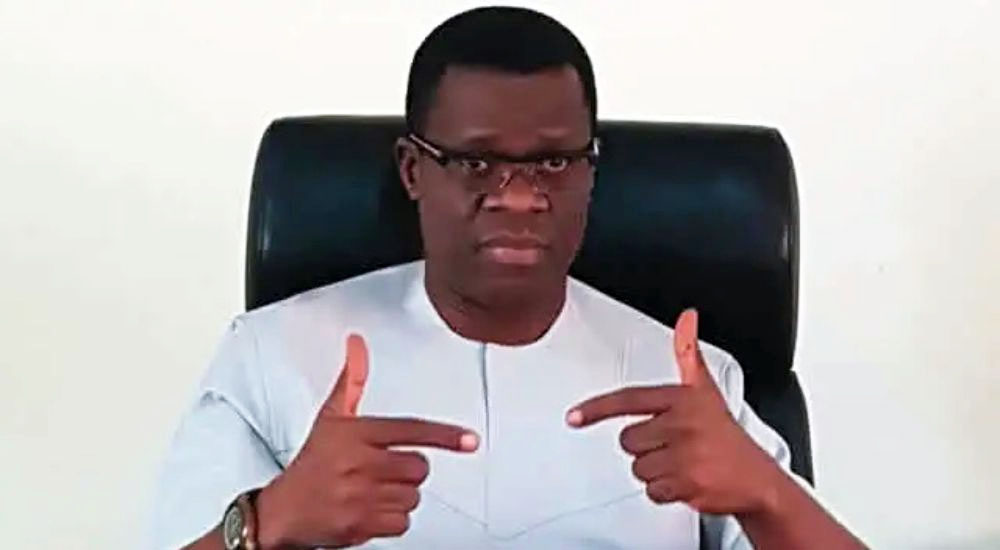News
Resign if you can’t pay minimum wage, labour tells govs

Resign if you can’t pay minimum wage, labour tells govs
Organised Labour on Saturday tackled the state governors, accusing them of acting in bad faith towards the new minimum wage negotiations ongoing in the country.
Recall that the governors under the aegis of the Nigeria Governors Forum rejected the proposed N60,000 minimum wage for Nigerian workers.
In a statement issued on Friday by the Director of Media and Public Affairs for NGF, Halimah Ahmed, the governors said the proposed minimum wage was too high and not sustainable.
The governors said if the N60,000 minimum wage is adopted, many states would allocate their entire Federal Account Allocation Committee funds to salaries, leaving no resources for development projects.
However reacting on Saturday, the Organised Labour faulted the NGF’s position, saying every part of the new minimum wage agreement should be implemented and any of the state governors who can’t pay it should resign.
Speaking with Sunday PUNCH, Deputy National President of the Trade Union Congress, Tommy Etim, said, “There is no minimum wage. Every segment of it should be implemented. For the governors, we have said it very clearly. If you cannot pay minimum wage, please resign because you were voted for governance not for only infrastructure.”
READ ALSO:
- Two killed in southern Lebanon as Hezbollah-Israel fighting soars
- Boko Haram attacks commuter bus in Yobe, three passengers killed
- Suspected kidnappers kill Enugu top politician Ejike Ukwueze
“If you build the entire infrastructure and the people are not living to use it, who will use it? When they were campaigning did they tell us that? They didn’t tell us that. They make use of the poor to get to the top and when they get there, they start thinking outside the box. All the money they spent in electioneering campaigns, if they applied that to build infrastructure, to develop the revenue generation that would have solved some socio-economic challenges in their domain,” Etim said.
Describing the NGF statement as a recipe for industrial unrest, he said, “In this same country, the governors said that N30,000 was too much for governors to pay but it is in the same country that a governor emerged with over N80bn. What an irony! We cannot jump processes. We will also look at it together. Labour will be meeting. We are giving Mr President the benefit of the doubt to work the talk. The end will justify the means.”
Also reacting in a statement signed by its Head of Public Affairs, Benson Upah, the Nigerian Labour Congress said, “We do believe the Governors have acted in bad faith. It is unheard of for such a statement to be issued to the world in the middle of an on-going negotiation. It is certainly in bad taste.
“As for the veracity of their claim, nothing can be further from the truth as FAAC allocations have since moved from N700bn to N1.2tn, making the governments extremely rich at the expense of the people.
“All that the governors need to do to be able to pay a reasonable national minimum wage (not even the N60,000) is cut on the high cost of governance, minimise corruption as well as prioritise the welfare of workers.”
Resign if you can’t pay minimum wage, labour tells govs
Punch
News
Ramadan Begins in Nigeria as Sultan Confirms Crescent Sighting

Ramadan Begins in Nigeria as Sultan Confirms Crescent Sighting
Abuja — The Sultanate Council on Tuesday night confirmed the sighting of the crescent moon, officially signaling the commencement of Ramadan 1447AH in Nigeria.
The President-General of the Nigerian Supreme Council for Islamic Affairs (NSCIA) and Sultan of Sokoto, Muhammad Sa’ad Abubakar III, announced that the new moon was sighted in parts of the country, thereby declaring Wednesday, February 18, 2026, as the first day of fasting for Muslims nationwide.
The announcement followed verified reports from moon-sighting committees across several states, in line with Islamic tradition which requires physical sighting of the crescent to mark the beginning of the ninth month of the Islamic lunar calendar.
In his message to the Muslim faithful, the Sultan urged Nigerians to use the holy month to pray for peace, unity, and national development. He also called on Muslims to embody the virtues of patience, compassion, charity, and self-discipline which Ramadan represents.
READ ALSO:
- Deadlock at National Assembly as House Snubs Electoral Act Bill Meeting on E-Transmission Clause
- Maikori Accuses Ex‑Governor El‑Rufai of Persecution Over 2017 Tweet
- Shari’ah Council Defends Kwankwaso, Rejects US “Christian Genocide” Claims
 Ramadan, one of the five pillars of Islam, requires adult Muslims to abstain from food, drink, and other physical needs from dawn until sunset throughout the month. The period is also marked by increased devotion, nightly congregational prayers in mosques, recitation of the Qur’an, and acts of charity to the less privileged.
Ramadan, one of the five pillars of Islam, requires adult Muslims to abstain from food, drink, and other physical needs from dawn until sunset throughout the month. The period is also marked by increased devotion, nightly congregational prayers in mosques, recitation of the Qur’an, and acts of charity to the less privileged.
Across major cities including Abuja, Lagos, Kano, and Port Harcourt, mosques recorded increased attendance for special night prayers following the announcement. Markets also witnessed heightened activity as families made last-minute purchases in preparation for the fasting period.
Ramadan will last 29 or 30 days, depending on the sighting of the next crescent, and will culminate in the celebration of Eid al-Fitr, marking the end of the fasting month.
Muslim leaders have encouraged faithful to observe the fast in accordance with Islamic teachings while maintaining harmony and mutual respect within Nigeria’s diverse society.
Ramadan Begins in Nigeria as Sultan Confirms Crescent Sighting
News
Saudi Arabia Confirms Sighting of Ramadan Crescent, Fasting Begins Wednesday

Saudi Arabia Confirms Sighting of Ramadan Crescent, Fasting Begins Wednesday
Riyadh, February 17, 2026 — Authorities in Saudi Arabia have officially confirmed the sighting of the crescent moon marking the beginning of the holy month of Ramadan, signaling that fasting will commence on Wednesday, February 18, 2026.
The announcement was made Tuesday evening following reports from moon-sighting committees across the Kingdom. In a statement carried by state media, the Supreme Court confirmed that verified testimonies of the crescent’s sighting had been received after sunset on the 29th day of Sha’ban.
With the confirmation, Muslims throughout the Kingdom will begin the first fast of Ramadan at dawn on Wednesday.
READ ALSO:
- Deadlock at National Assembly as House Snubs Electoral Act Bill Meeting on E-Transmission Clause
- Maikori Accuses Ex‑Governor El‑Rufai of Persecution Over 2017 Tweet
- Shari’ah Council Defends Kwankwaso, Rejects US “Christian Genocide” Claims
Religious authorities had earlier called on citizens and residents to look for the crescent on Tuesday evening and report any confirmed sightings to the nearest court. Observations were conducted in various regions, including areas around Riyadh and Mecca, as part of the Kingdom’s longstanding tradition of physical moon sighting.
Ramadan, the ninth month of the Islamic lunar calendar, is observed by Muslims worldwide as a period of fasting, prayer, charity, and spiritual reflection. The start of the month is determined by the sighting of the new crescent moon, in accordance with Islamic tradition.
Several other countries in the Gulf region are also expected to begin fasting on Wednesday following similar confirmations, while some nations may rely on local moon sightings to determine their own start date.
Further announcements regarding the duration of nightly Taraweeh prayers and official Ramadan working hours are expected from relevant authorities in the coming days.
Saudi Arabia Confirms Sighting of Ramadan Crescent, Fasting Begins Wednesday
News
Former INEC REC Warns of “Chaos” in 2027 Over E-Transmission of Election Results

Former INEC REC Warns of “Chaos” in 2027 Over E-Transmission of Election Results
A former Resident Electoral Commissioner (REC) of the Independent National Electoral Commission (INEC), Mike Igini, has raised concerns that Nigeria’s ongoing debate over electronic transmission of election results exposes unresolved legal, institutional, and technological challenges, despite years of electoral reforms. Speaking on Channels Television’s Politics Today on Monday, Igini warned that recent Senate amendments to the Electoral Act could create confusion and vulnerabilities in future elections, particularly the 2027 general polls. He stressed that failing to clarify rules on electronic results transmission risks undermining democracy, transparency, and public confidence.
The controversy stems from the Senate’s recent amendment to the Electoral Act, which now allows electronic transmission of results but removed the “real-time” requirement that had previously been proposed to enable direct uploading from polling units to the INEC Result Viewing Portal (IREV). Under the amendment, Form EC8A, the physical result sheet, remains the primary document in cases of internet outages or connectivity failure. Igini cautioned that this creates a grey area that could trigger disputes in 2027 if presiding officers are allowed discretion over network availability, highlighting that legal and technological clarity is essential to avoid chaos.
READ ALSO:
- DHQ Confirms 100 US Military Personnel Arrive in Bauchi for Counter-Terrorism Training
- Dokpesi Jr, Ex-GMD Akiotu Clash Over DAAR Communications Mgt Restructuring
- EFCC Holds El-Rufai Overnight Over ₦423bn Kaduna Corruption Allegations
Referencing a 2021 technical report by INEC and the Nigerian Communications Commission (NCC), Igini said Nigeria possesses adequate telecommunications coverage, with 2G and 3G networks covering about 93% of the country, making electronic transmission feasible nationwide. INEC had also mapped polling units to mobile network operators and prepared SIM cards and data arrangements to ensure smooth uploads to IREV. He explained that Nigeria had previously relied on interim innovations, including biometric voter registers, card readers, and digital result-viewing platforms, to enhance transparency where legal provisions prohibited full electronic transmission.
Igini further warned that introducing discretionary fallbacks for “network issues” could reintroduce vulnerabilities, as presiding officers might abuse their authority to manipulate results. He emphasised that modern election devices, such as BIVAS machines, can operate both online and offline, uploading results at the nearest connectivity point to ensure integrity in IREV. “The whole purpose of IREV is to make results verifiable and immutable once entered. Allowing manual override defeats the reforms we have painstakingly implemented over the years,” he said.
He also noted that judicial interpretations and evolving legislative amendments have contributed to uncertainty over the legality of technological innovations in elections. Igini urged lawmakers to consider the long-term implications of changes to the Electoral Act, stressing that Nigeria’s democratic stability relies on cooperation between INEC, the judiciary, and key stakeholders. “Our democracy’s future depends on the rule of law. Without it, society risks being dominated by those who act for personal interest rather than public good,” he added.
With the 2027 elections approaching, Igini’s warnings underscore the need for clear legal frameworks, technological preparedness, and robust institutional coordination. He urged all stakeholders to work collaboratively to ensure that electronic transmission of results enhances transparency, accountability, and credibility in Nigeria’s electoral process.
Former INEC REC Warns of “Chaos” in 2027 Over E-Transmission of Election Results
-

 Education3 days ago
Education3 days agoCheck Your Name: UNILORIN Releases Updated NELFUND Refund List for 2024/2025 Students
-

 News2 days ago
News2 days agoOsogbo Sons and Daughters Mark 5th Anniversary with Awards, Political Undertones
-

 News11 hours ago
News11 hours agoSaudi Arabia Confirms Sighting of Ramadan Crescent, Fasting Begins Wednesday
-

 metro2 days ago
metro2 days agoUS Freezes Assets of Eight Nigerians Over Boko Haram, ISIL, Cybercrime Links
-

 News3 days ago
News3 days agoAfenifere Calls for Immediate Take-Off of State Police as Terror Threats Rise in Yorubaland
-

 metro2 days ago
metro2 days agoTerror in Lagos Traffic: Cutlass Gang Unleashes Mayhem on Mile 12–Ketu Road
-

 metro3 days ago
metro3 days agoArgungu Festival 2026 Highlights Peace, Stability, Economic Growth — Tinubu
-

 Entertainment2 days ago
Entertainment2 days agoMystery in Lekki: Police Probe Death of Two Nollywood Crew Found Lifeless in Parked Car















